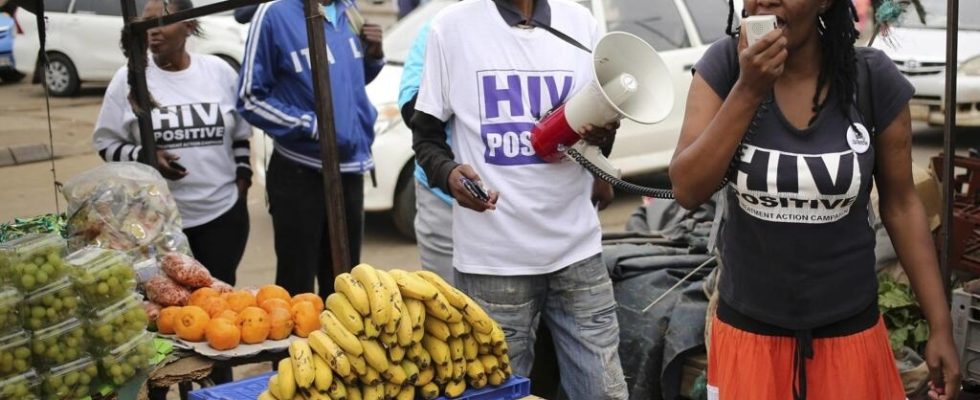Sub-Saharan Africa is still the region hardest hit by HIV in the world, it accounts for two thirds of people living with the virus (65%). But the situation is improving and more and more countries are reaching the objectives they have set for 2025, such as South Africa, the most affected country in the world.
1 min
With our correspondent in Johannesburg, Josephine Kloeckner
In South Africa, almost 8 million people are infected with HIV. An unprecedented number in the world, but which has recorded a significant decline for the first time, according to a study by a public research institute. Over the last five years, the proportion of South Africans carrying HIV has increased from 14% to 12.7% of the population, that’s 100,000 fewer people.
South Africans, however, are unevenly affected by the virus. It affects black people, young people, and especially women, especially young women. Between 25 and 29 years old, they are three times more likely than men to carry the virus, victims in particular of the decline in condom use.
Among the advances, the use of antiretrovirals is clearly increasing. Particularly since 2016 and the generalization of their unconditional free access.
Across sub-Saharan Africa, where more than 25 million people carry HIV, testing and treatment are also improving. According to UNAIDS, five countries in the region have already achieved the targets for 2025, and eight others are approaching them.
